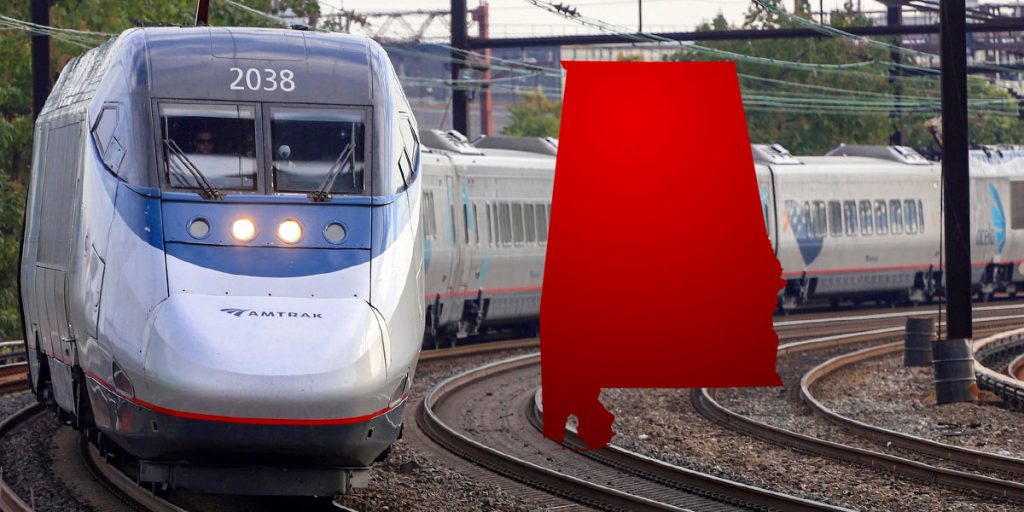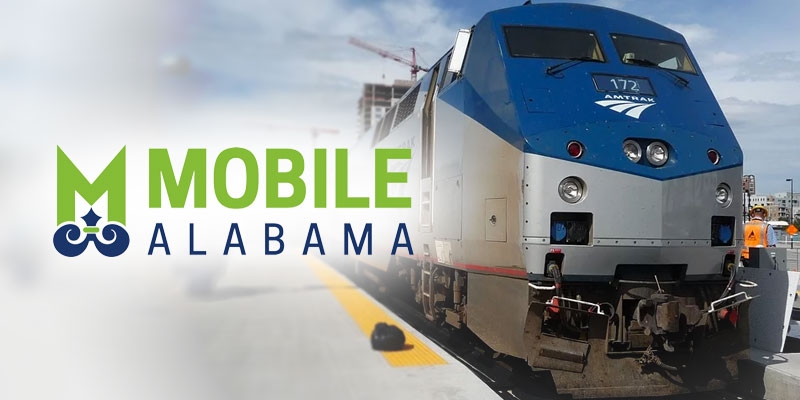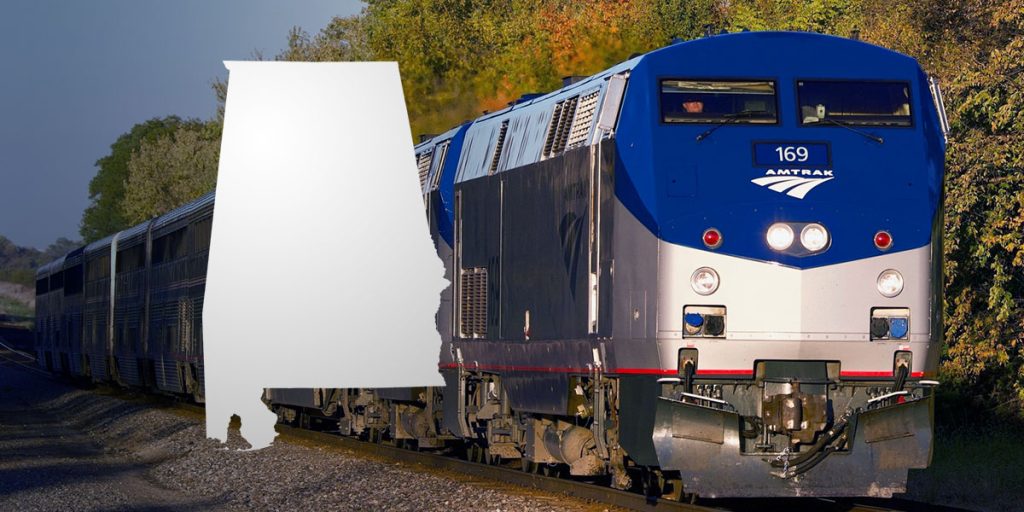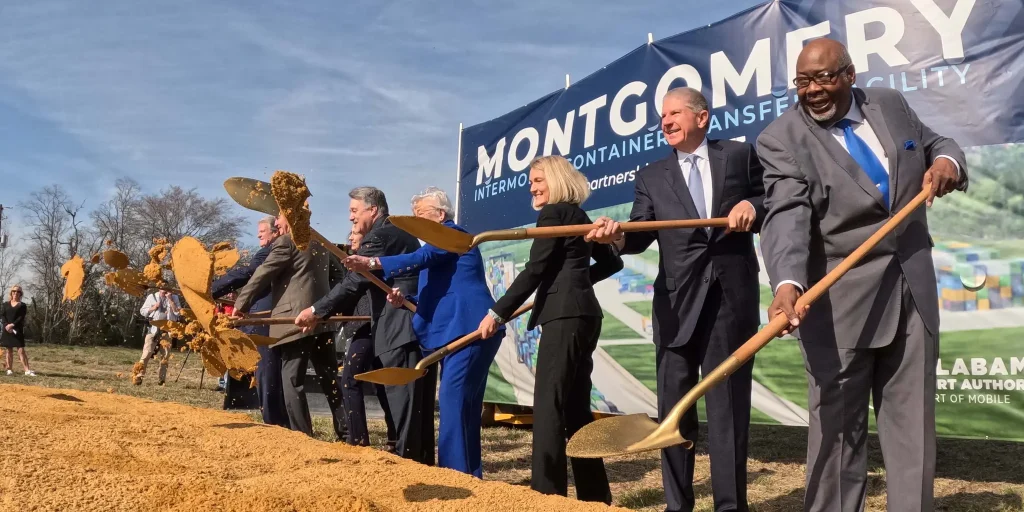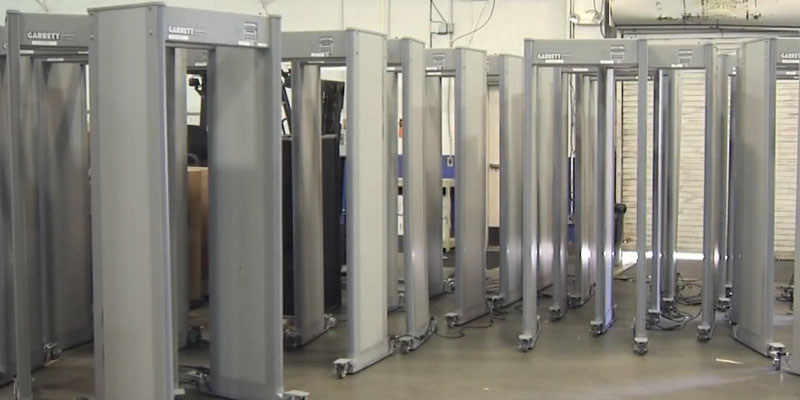MONTGOMERY — A passenger rail service from Mobile to New Orleans sounds nice, and certainly could have benefits for tourism in areas of the Gulf Coast. However, do these positives actually outweigh the costs and other impacts involved?
This was the subject of spirited debate at Friday’s meeting of the Southern Rail Commission (SRC), with more questions than answers coming to light as far as Alabama is concerned.
The SRC, comprised of commissioners from its three member-states: Alabama, Mississippi and Louisiana, is currently pushing its Gulf Coast Passenger Rail project, urging the Yellowhammer State to join in as the last remaining signatory needed.
However, there is a good reason why Governor Kay Ivey’s administration is proceeding cautiously: A study has not even been conducted yet that would truly measure the project’s impact on economic development in Alabama.
And, despite the fact a railway operational/capacity simulation study has not been conducted, communities in Mississippi have already begun spending taxpayer money on infrastructure for the project — and are urging others to similarly apply for and spend funds.
The simulation study would assess infrastructure needs to accommodate passenger rail and any impact on existing freight rail service. In Alabama’s portion of the project pathway, CSX owns the tracks.
CSX and Amtrak, which would operate the proposed passenger rail service, recently agreed to terms on how this impact study would be done. On the other hand, Norfolk Southern has not yet agreed to terms with Amtrak, and since it will be a joint study, it will not begin until Norfolk Southern and Amtrak come to terms.
One step forward, two steps back?
Meanwhile, the Alabama State Port Authority, which owns and operates the public terminals at the Port of Mobile, says everything they have seen suggests that the proposed passenger rail service would negatively impact the port.
In a statement to Yellowhammer News, Port Authority vice president of marketing Judith Adams stressed, “The Port Authority is extremely concerned over passenger rail interruptions on what is already a heavily used rail corridor crucial to Alabama’s seaport.”
Amtrak service would move two trains daily (4 transits) on the CSX mainline from the west into downtown Mobile then back west. CSX alone runs about 20 trains per day, making it a very congested rail corridor, according to the Port Authority, which uses that line as well.
Currently, the Port Authority has 4 unit trains transiting that line every day, carrying Alabama export coal bound for the McDuffie Coal Terminal that accounts for half of the port’s total business and handles approximately 85% of Alabama’s coal production. Additionally, the number of railed coal trains could double in the next three years should Alabama’s largest miner, Warrior Met Coal, move forward with construction of a potential new mine.
The use of that CSX line also supports crossings for both the Port Authority’s railroad (Terminal Railway) and five other railroads entering the Port’s main dock terminals, the container intermodal rail terminal and the soon-to-be-constructed finished automobile terminal.
All of this traffic on a single line would be forced into sidings, creating more congestion and delay, so passenger rail could pass. Passenger trains would get priority use of the line, per the Port Authority. This congestion alone would strictly be focused on the downtown area line.
Passenger trains could also impact CSX freight moving in and out of its Hamilton Blvd./Theodore yards west of the city. CSX services the Theodore Ship Channel industries, such as Millard Maritime, Conrad Yelvington, Worthington, Diversified Foods, Ferguson, Bayou Concrete, Holcim, Bayer, Evonik, INEOS Phenol. Trains carrying products for these industries would also have to sit on sidings or delay entry onto the line to accommodate the passenger trains, according to the Port Authority.
“All trains calling on the Port Authority’s terminals on the river, as well as CSX served industries on the Theodore Ship Channel, utilize the same CSX track the passenger rail service would use,” Adams said. “All of that traffic experience delay due to existing heavy traffic on the CSX line, so adding passenger rail traffic will only further delay services to customers using the port.”
“Neither the SRC or Amtrak have shown anything to leads us to believe that this service would not interfere with freight traffic at Alabama’s only deep-water seaport,” she concluded.
In addition to the Port of Mobile’s concerns about negative impacts of the passenger rail project, customers of rail freight services in Alabama have a lot potentially at stake here, too.
Some of the state’s biggest industries and job creators rely on freight and the port for both exports and imports, and these stakeholders want to be at the table as the project is discussed.
While proponents of the passenger rail project claimed on Friday that all stakeholders were present at a recent meeting in Mobile, this closed-door meeting did not actually see freight services or freight customers invited.
Patrick Cagle, president of the Alabama Coal Association, was present at Friday’s meeting in Montgomery and asked that his important industry and others across Alabama be included in the ongoing discussions.
After all, to truly weigh the pros and cons of the proposed project, the SRC and other proponents involved need to hear and understand the realities faced by freight customers.
Additionally, with as much investment of private, federal, state and local funds continues to go into growing the Port of Mobile’s international competitiveness, rushing into something without all of the facts could jeopardize the upward trajectory of Alabama’s booming economy.
Cagle, in a statement to Yellowhammer News after the meeting, especially praised Senator Richard Shelby (R-AL) and Ivey for their leadership and stalwart support of the port. He said his industry and his association are not opposed to passenger rail services, but that lingering questions should be answered and all due diligence conducted before Alabama joins the project.
“I understand and appreciate the potential benefits that passenger rail service could have along the Gulf Coast, including with Alabama’s tremendous tourism industry,” Cagle said. “However, all that we ask is that all stakeholders have a seat at the table so we can take a comprehensive, inclusive look at the benefits and potential pitfalls involved. This is not just our state’s coal industry, but the many commodities and products shipped into and out of Mobile.”
“Senator Shelby’s historic leadership and the landmark accomplishment of Governor Ivey’s Rebuild Alabama Plan mean brighter days for Alabama’s economy and future generations,” he continued. “If there is even a chance that the major investments being made into the Port and the significant progress we are making could be negatively affected by this project, I believe that caution is absolutely the right approach. A true impact study should be completed to make sure this is right for the people of our great state.”
The deputy director of the Alabama Department of Economic and Community Affairs (ADECA), Anita Archie, is a member of the SRC. During Friday’s meeting, she stressed that not only do these questions remain unanswered pertaining to economic development and trade, but that paying for Alabama’s portion of the project costs is still up in the air, too.
She said talks continue on how to pay for these costs but stressed that this remains a serious issue.
In a series of remarks, Archie raised pressing concerns about rushing ahead with so many integral questions yet to be addressed — and so many facts admittedly unknown. This includes how operation and maintenance costs will be paid for by Alabama taxpayers after the first three years, which are being covered by federal tax dollars. These O&M costs will rise into the millions, she said.
Archie, the former senior vice president for governmental affairs at the Business Council of Alabama and former deputy mayor of Montgomery, knows both the private sector and public sector perspectives involved in major projects like this passenger rail venture. She seemed to be the voice of reason in the room on Friday, expressing that it was premature to ask Alabama to sign off on the project and questioning why the other two states have already done so.
The good news?
Governor Kay Ivey seems to be standing up to external pressures to dive in headfirst and commit state money without first having all of the information with which to make an informed decision.
For some reason, Alabama Media Group in a complete non-sequitur of an article last week even tried to imply the governor’s current caution is somehow a “retaliation” for the I-10 toll bridge proposal in Mobile dying. This came despite Ivey’s position on the passenger rail project remaining consistent for several months now.
In a statement to Yellowhammer News after the meeting on Friday, Ivey’s press secretary said, “The governor recognizes the seriousness and largeness of the decision on this multi-year, multi-million dollar project.”
“There are questions that still remain, and Governor Ivey wants to make certain that we have all the facts before making a commitment to a project that will impact Alabama in the years to come,” Gina Maiola continued. “Governor Ivey says that we must do our due diligence and most wisely and effectively use our funds.”
This type of approach from Alabama’s governor has drawn the praise of Grover Norquist, founder and leader of Americans for Tax Reform.
Norquist told Yellowhammer News on Friday that Ivey is being “very courageous” in her current stance on the passenger rail project.
“Politicians are asking for millions of dollars to take [private rail tracks] and create this new southern line,” he outlined. “Even Amtrak itself admits that this new line would attract 26 riders per train and require a $6 million annual subsidy in addition to the money being spent [to get the project up and running] now.”
Norquist advised that everything he has seen points to the project being a wasteful use of government funds.
“One — you could take a bus, you could take an Uber,” he said, speaking to alternative transport methods along the same route. “This is not an area where you have to take a train to get there. It’s not faster, it’s not a speedy trip [by train]. And it’s a whole bunch more money to subsidize Amtrak, which already gets about a billion dollars subsidy a year (nationally).”
This view is not just held by Norquist. In fact, the president and CEO of the Mississippi Center for Public Policy recently published a compelling op-ed arguing why, “Taxpayers shouldn’t have to pay for passenger trains we aren’t using.”
What’s next?
The next meeting of the SRC is December 6 in Bay St. Louis, MS, which is set to get a stop on the proposed passenger rail route. The mayor will be hosting the SRC members at his house the night before the meeting for a dinner.
Even if Alabama does not sign off on the project, the project is expected to continue, just without a stop in Mobile and Alabama funds being used.
Archie and other Alabama SRC commissioners on Friday asked their colleagues for a “drop-dead” date by which Alabama must decide, but no solid answer was provided.
The easternmost stop in Mississippi is slated to be in Pascagoula, which is an approximately 40-minute drive from Mobile.
Sean Ross is the editor of Yellowhammer News. You can follow him on Twitter @sean_yhn








